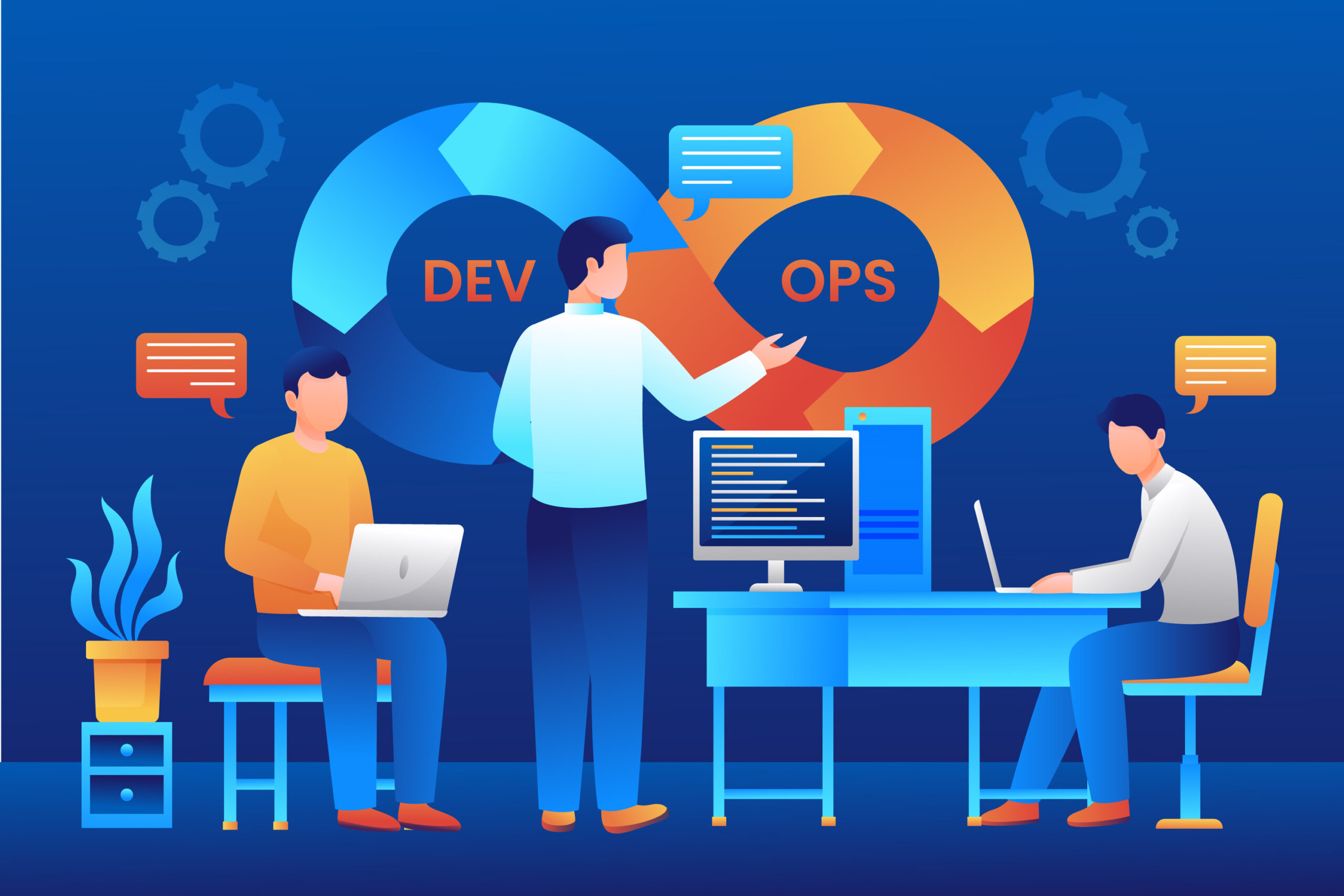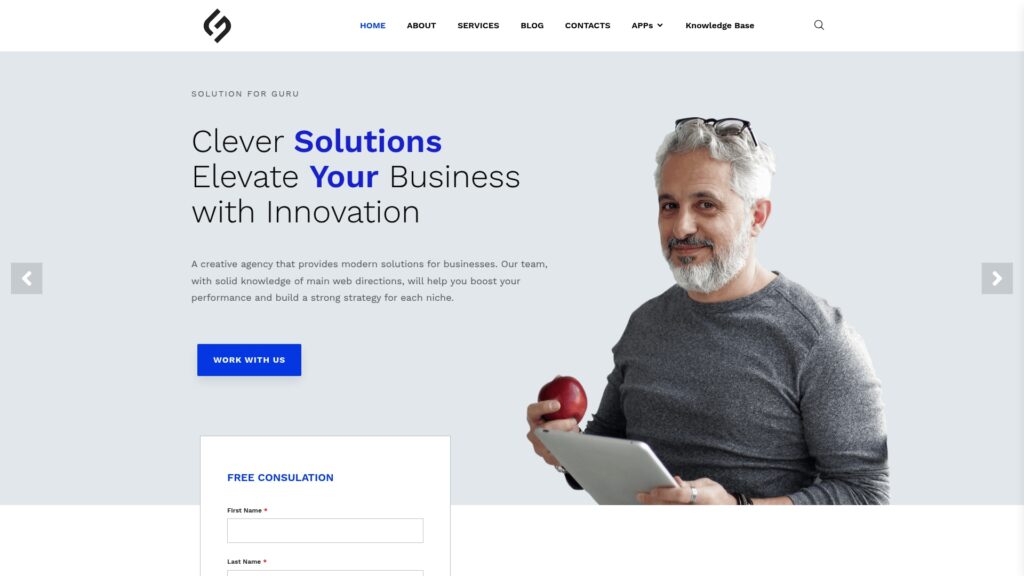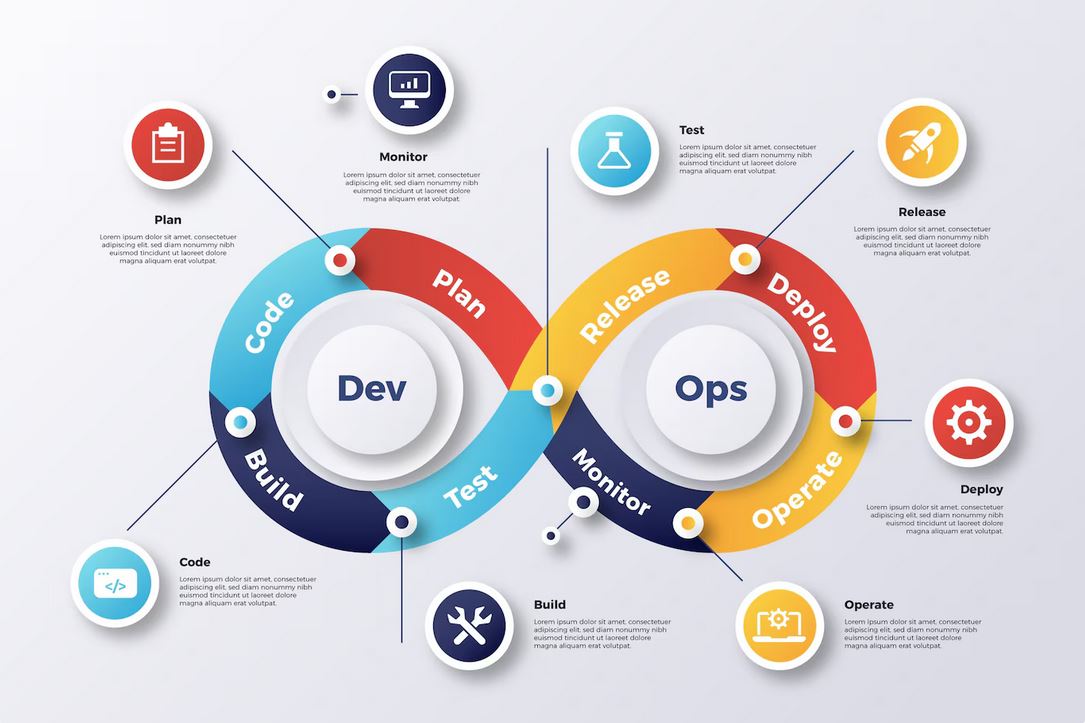DevOps Jobs

The DevOps landscape has evolved dramatically over the past decade, transforming from a niche methodology into a critical business strategy that drives digital transformation across industries. As organizations increasingly adopt cloud-native architectures, continuous integration, and automated deployment pipelines, the demand for skilled DevOps professionals has skyrocketed. This comprehensive guide explores the diverse world of DevOps careers, providing detailed insights into job positions, salary expectations, key responsibilities, and the specific skills required to succeed in this dynamic field.
Table of Contents
- Quick Summary
- Monday.com and DevOps Software Impact
- DevOps Job Market Overview
- Core DevOps Positions
- Salary Analysis and Compensation
- Key Responsibilities and Daily Tasks
- Essential Skills and Technologies
- Career Progression Paths
- Industry-Specific Opportunities
- Remote Work and Geographic Trends
- Future Job Market Outlook
- Let’s summarize
- Frequently Asked Questions
- Benefits of Cooperation with Solution4Guru
Quick Summary
The DevOps job market is experiencing unprecedented growth, with positions ranging from entry-level DevOps Engineers earning $75,000-$95,000 annually to senior DevOps Architects commanding $160,000-$220,000+ per year. Key roles include DevOps Engineer, Site Reliability Engineer (SRE), Cloud Engineer, and DevOps Architect, each requiring expertise in automation tools, cloud platforms, and continuous integration/deployment practices. The field demands proficiency in technologies like Docker, Kubernetes, AWS/Azure, Jenkins, and Infrastructure as Code tools. Remote work opportunities are abundant, and career progression typically follows paths from individual contributor roles to team leadership and strategic architecture positions. The integration of modern project management and collaboration tools has revolutionized how DevOps teams operate and deliver value to organizations.
Monday.com and the Evolution of DevOps Software
Modern DevOps practices have been significantly enhanced by sophisticated project management and collaboration platforms like Monday.com, which have transformed how DevOps teams coordinate complex workflows and manage multi-stage deployment pipelines. These platforms provide crucial visibility into development lifecycles, enabling seamless integration between development, operations, and business stakeholders through intuitive dashboards and automated reporting mechanisms.
The impact of platforms like Monday.com on the DevOps labor market cannot be overstated, as they have created new specialization areas and skill requirements within traditional DevOps roles. Consequently, modern DevOps professionals are increasingly expected to demonstrate proficiency in workflow automation, cross-functional collaboration tools, and integrated project management systems. Furthermore, these tools have enabled organizations to scale DevOps practices more effectively, driving increased demand for professionals who can leverage such platforms to optimize development velocity and operational efficiency while maintaining high standards of quality and reliability.
DevOps Job Market Overview
The DevOps job market represents one of the most dynamic and rapidly expanding sectors within the technology industry. Moreover, the convergence of development and operations has created entirely new categories of roles that didn’t exist a decade ago. Consequently, organizations across all industries are actively seeking professionals who can bridge traditional silos and accelerate software delivery through automation and collaborative practices.
According to recent industry analyses, DevOps-related job postings have increased by over 75% in the past three years, with demand particularly strong in sectors such as financial services, healthcare, e-commerce, and cloud-native startups. Additionally, the shift toward remote-first work environments has expanded opportunities for DevOps professionals to work with organizations globally, further intensifying competition for top talent.
Market Drivers and Growth Factors
Several key factors are driving the explosive growth in DevOps employment opportunities. Furthermore, digital transformation initiatives across industries have made DevOps capabilities essential for competitive advantage and operational efficiency.
- Cloud migration projects requiring specialized expertise in AWS, Azure, and Google Cloud Platform
- Containerization and microservices adoption driving demand for Kubernetes and Docker specialists
- Regulatory compliance requirements necessitating automated security and compliance workflows
- Continuous integration and deployment becoming standard practice across organizations
- Infrastructure as Code adoption requiring skills in Terraform, CloudFormation, and similar tools
- Site reliability engineering practices becoming mainstream in large-scale operations

Core DevOps Positions
The DevOps ecosystem encompasses a diverse range of specialized positions, each requiring unique skill sets and focusing on different aspects of the software delivery lifecycle. Nevertheless, these roles often overlap and collaborate closely to achieve organizational objectives.
DevOps Engineer
DevOps Engineers serve as the foundational role in most DevOps organizations, bridging the gap between software development and IT operations. Additionally, they are responsible for implementing automation tools and processes that enable rapid, reliable software deployment.
DevOps Engineer – Compensation Overview
- Entry Level (0-2 years): $75,000 – $95,000
- Mid Level (3-5 years): $95,000 – $125,000
- Senior Level (6+ years): $125,000 – $160,000
- Geographic Premium: San Francisco (+25%), New York (+20%), Seattle (+15%)
Site Reliability Engineer (SRE)
Site Reliability Engineers focus specifically on system reliability, performance optimization, and incident response. Moreover, they apply software engineering principles to infrastructure and operations challenges, ensuring systems can scale efficiently while maintaining high availability.
Cloud Engineer
Cloud Engineers specialize in designing, implementing, and managing cloud-based infrastructure and services. Furthermore, they possess deep expertise in cloud platforms and are responsible for optimizing cloud costs while ensuring security and compliance.
DevOps Architect
DevOps Architects design and oversee the implementation of comprehensive DevOps strategies and toolchains across organizations. Consequently, they require extensive experience and the ability to make strategic technology decisions that impact entire engineering organizations.
| Position | Experience Required | Salary Range | Key Focus Areas | Market Demand |
| DevOps Engineer | 2-5 years | $75K – $160K | CI/CD, Automation, Monitoring | Very High |
| Site Reliability Engineer | 3-7 years | $110K – $180K | System Reliability, Performance | Very High |
| Cloud Engineer | 2-6 years | $85K – $170K | Cloud Platforms, Migration | Very High |
| DevOps Architect | 7+ years | $160K – $220K+ | Strategy, Architecture Design | High |
| Platform Engineer | 4-8 years | $120K – $190K | Internal Platforms, Developer Experience | Very High |
| DevSecOps Engineer | 3-6 years | $100K – $175K | Security Integration, Compliance | High |
Comprehensive Salary Analysis and Compensation
DevOps salaries vary significantly based on multiple factors including geographic location, industry sector, company size, and individual expertise levels. Nevertheless, the field consistently offers competitive compensation packages that often exceed traditional IT roles.
Factors Influencing DevOps Compensation
Understanding the various factors that impact DevOps salaries enables professionals to make informed career decisions and negotiate effectively. Furthermore, these factors often compound, creating significant variations in total compensation packages.
- Geographic Location: Major tech hubs command premium salaries but also have higher living costs
- Industry Vertical: Financial services and healthcare typically offer the highest compensation
- Company Stage: Large enterprises often provide stability while startups offer equity upside
- Specialized Skills: Expertise in emerging technologies can command significant premiums
- Security Clearance: Government and defense contractors offer additional compensation for cleared professionals
- Leadership Experience: Team management and strategic planning capabilities significantly increase earning potential
Total Compensation Beyond Base Salary
Modern DevOps compensation packages typically extend well beyond base salaries, incorporating various forms of additional compensation that can significantly impact total earnings. Additionally, these benefits packages are often designed to attract and retain top talent in a highly competitive market.
Typical Total Compensation Components:
• Base Salary (60-70% of total compensation)
• Annual Bonuses (10-20% of base salary)
• Equity/Stock Options (varies significantly by company)
• Health and Wellness Benefits
• Professional Development Budgets ($2,000-$10,000 annually)
• Flexible Work Arrangements and Remote Work Options

Key Responsibilities and Daily Tasks
DevOps professionals engage in a diverse range of activities that span traditional development and operations boundaries. Moreover, these responsibilities continue to evolve as organizations mature in their DevOps adoption and new technologies emerge.
Infrastructure Management and Automation
One of the core responsibilities involves designing, implementing, and maintaining automated infrastructure provisioning and management systems. Furthermore, this includes creating Infrastructure as Code solutions that enable consistent, repeatable deployments across different environments.
- Developing and maintaining Infrastructure as Code using tools like Terraform, CloudFormation, or Pulumi
- Managing containerized applications using Docker and orchestrating with Kubernetes
- Implementing automated scaling solutions and load balancing strategies
- Monitoring infrastructure performance and implementing alerting systems
- Optimizing cloud resource utilization and managing costs effectively
Continuous Integration and Deployment
DevOps professionals are responsible for designing and maintaining CI/CD pipelines that enable rapid, reliable software delivery. Additionally, they must ensure these pipelines incorporate appropriate testing, security scanning, and quality gates.
Collaboration and Communication
Effective DevOps practice requires extensive collaboration between development teams, operations staff, and business stakeholders. Consequently, strong communication skills and the ability to facilitate cross-functional initiatives are essential competencies.
Essential Skills and Technologies
The DevOps field requires a unique combination of technical expertise, problem-solving abilities, and interpersonal skills. Furthermore, the rapid pace of technological change means professionals must commit to continuous learning and skill development.
| Cloud Platforms – Amazon Web Services (AWS) – Microsoft Azure – Google Cloud Platform – Multi-cloud strategies | Containerization & Orchestration – Docker containerization – Kubernetes orchestration – Container registries – Service mesh technologies | Infrastructure as Code – Terraform – CloudFormation – Ansible – Pulumi |
| CI/CD Tools – Jenkins – GitLab CI – Azure DevOps – GitHub Actions | Monitoring & Observability – Prometheus & Grafana – ELK Stack – DataDog – New Relic | Programming Languages – Python – Go – Bash scripting – YAML/JSON |
Soft Skills and Professional Competencies
Technical expertise alone is insufficient for DevOps success; professionals must also develop strong interpersonal and business skills. Moreover, the collaborative nature of DevOps requires abilities that enable effective cross-functional teamwork and stakeholder management.
Career Progression Paths
DevOps offers multiple career advancement opportunities, allowing professionals to specialize in technical depth or transition into leadership and strategic roles. Furthermore, the interdisciplinary nature of DevOps creates unique pathways that don’t exist in more traditional technology roles.
Technical Specialization Track
Many DevOps professionals choose to deepen their technical expertise in specific areas while maintaining broad operational knowledge. Additionally, this specialization often leads to consulting opportunities and premium compensation packages.
- Security Specialization: DevSecOps Engineer → Security Architect → Chief Security Officer
- Cloud Specialization: Cloud Engineer → Cloud Architect → Cloud Strategy Director
- Platform Specialization: Platform Engineer → Platform Architect → Developer Experience Lead
- Site Reliability: SRE → Senior SRE → SRE Manager → VP of Engineering
Leadership and Management Track
DevOps professionals with strong leadership aptitude often transition into management roles that combine technical oversight with team development responsibilities. Consequently, these roles require both technical credibility and people management skills.
Industry-Specific Opportunities
Different industries present unique challenges and opportunities for DevOps professionals, often requiring specialized knowledge and compliance considerations. Moreover, industry expertise can significantly differentiate candidates in competitive job markets.
| Industry | Specific Challenges | Salary Premium | Key Technologies | Growth Outlook |
| Financial Services | Regulatory compliance, Security | 15-25% | Mainframe integration, Risk management | High |
| Healthcare | HIPAA compliance, Patient data | 10-20% | Data privacy, Interoperability | High |
| E-commerce | High availability, Scalability | 5-15% | CDN, Real-time analytics | Very High |
| Government/Defense | Security clearance, Compliance | 20-30% | Air-gapped systems, FedRAMP | Moderate |
| Technology/SaaS | Rapid scaling, Innovation | Base level | Cutting-edge tools, Microservices | Very High |
Remote Work and Geographic Trends
The DevOps field has embraced remote work more successfully than many other technology disciplines, largely due to the nature of cloud-based work and collaborative tooling. Furthermore, this trend has created opportunities for professionals to access global job markets while maintaining work-life balance.
Remote Work Impact on Compensation
Remote work policies vary significantly among organizations, with some maintaining location-based salary adjustments while others adopt location-agnostic compensation models. Nevertheless, talented DevOps professionals often have significant leverage in negotiating remote work arrangements.

Future Job Market Outlook
The DevOps job market shows no signs of slowing, with emerging technologies creating new specialization opportunities and organizational digital transformation driving sustained demand. Moreover, the evolution toward platform engineering and developer experience roles suggests the field will continue expanding and maturing.
Emerging Trends Shaping Future Opportunities
Several technological and organizational trends are creating new categories of DevOps roles and reshaping existing positions. Additionally, professionals who stay ahead of these trends position themselves for the most attractive opportunities and compensation packages.
- AI/ML Operations (MLOps): Growing demand for professionals who can operationalize machine learning models
- Edge Computing: New challenges in distributed infrastructure management
- FinOps: Increasing focus on cloud cost optimization and financial accountability
- Platform Engineering: Internal developer platform creation and maintenance
- Sustainability: Green computing and carbon-aware infrastructure management
Let’s summarize
The DevOps job market represents one of the most dynamic and rewarding career opportunities in the technology sector, offering exceptional growth potential, competitive compensation, and the ability to drive meaningful organizational transformation. As digital transformation continues to accelerate across industries, the demand for skilled DevOps professionals shows no signs of diminishing, creating sustained opportunities for career advancement and professional development.
Success in DevOps requires a unique combination of technical expertise, collaborative mindset, and continuous learning commitment. Furthermore, the field’s evolution toward platform engineering, security integration, and emerging technologies like AI/ML operations ensures that motivated professionals can build diverse, fulfilling careers with significant impact on business outcomes. The integration of sophisticated project management and collaboration platforms like Monday.com has further enhanced the DevOps landscape, enabling more effective coordination of complex workflows and creating new skill requirements that savvy professionals can leverage for competitive advantage.
Whether you’re considering a transition into DevOps or seeking to advance your existing career, the opportunities are abundant for those willing to invest in skill development and embrace the collaborative culture that defines successful DevOps practice. Moreover, the field’s emphasis on automation, efficiency, and continuous improvement aligns perfectly with the broader technology industry’s trajectory toward more sophisticated, reliable, and scalable software delivery systems. With proper preparation, strategic skill development, and the right guidance, DevOps careers offer the potential for both personal fulfillment and substantial financial rewards in an increasingly digital business environment.
Frequently Asked Questions
While many DevOps professionals have computer science or engineering degrees, the field is increasingly welcoming to professionals from diverse educational backgrounds. What matters most is demonstrable technical skills, hands-on experience with DevOps tools, and relevant certifications. Many successful DevOps engineers have transitioned from system administration, software development, or even non-technical fields through bootcamps, self-learning, and professional development programs. Industry certifications from AWS, Azure, Kubernetes, and other platforms often carry more weight than traditional degrees.
The transition timeline varies significantly based on your starting point and learning intensity. Professionals with existing IT experience (system administration, software development, or network engineering) can typically transition within 6-12 months with focused learning and hands-on practice. Those starting from non-technical backgrounds may need 12-18 months to build foundational knowledge and practical skills. Key factors include dedicating time to hands-on labs, building a portfolio of projects, obtaining relevant certifications, and gaining experience with core tools like Docker, Kubernetes, and cloud platforms.
The highest-demand skills currently include Kubernetes orchestration, cloud platform expertise (particularly AWS and Azure), Infrastructure as Code with Terraform, containerization with Docker, and CI/CD pipeline development. Additionally, monitoring and observability skills using tools like Prometheus, Grafana, and ELK stack are increasingly valuable. Security integration (DevSecOps) capabilities are also commanding premium salaries, as organizations prioritize security throughout the development lifecycle. Programming skills in Python or Go, along with strong automation scripting abilities, remain fundamental requirements across most DevOps positions.
Benefits of Cooperation with Solution4Guru
Partnering with Solution for Guru provides organizations and professionals with specialized expertise in DevOps transformation and career development. Their comprehensive approach combines technical excellence with strategic business insight, enabling both individual career advancement and organizational DevOps maturity improvement.

Solution for Guru offers extensive experience in DevOps implementation, tool selection, and team development across diverse industry verticals. Moreover, their expert consultants provide personalized guidance for professionals seeking to advance their DevOps careers, including skill gap analysis, certification roadmaps, and strategic positioning for premium opportunities in the competitive job market.
Key benefits include accelerated learning



